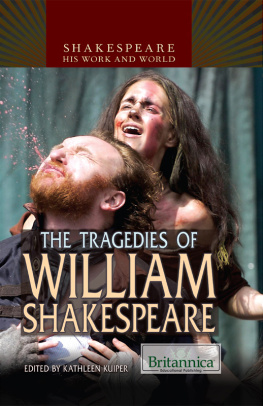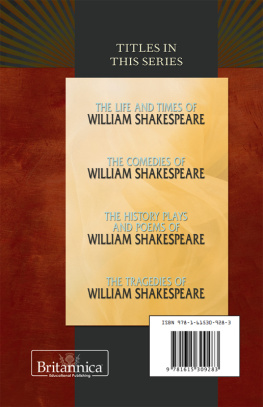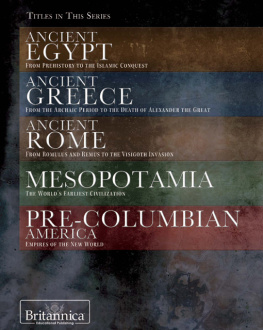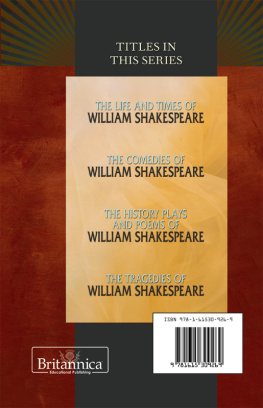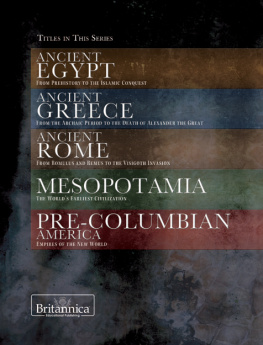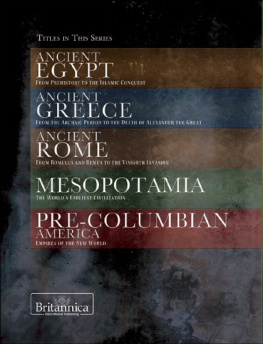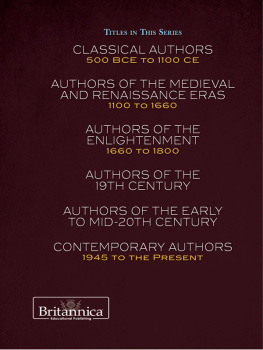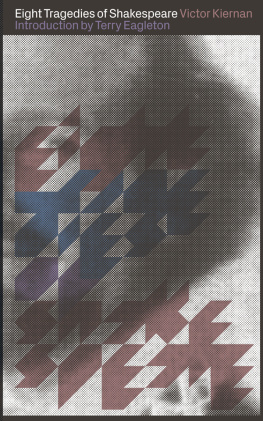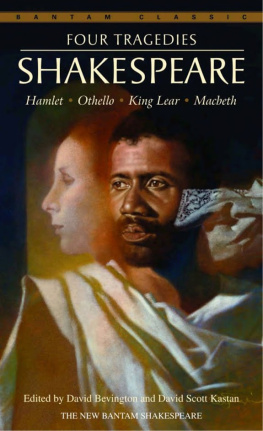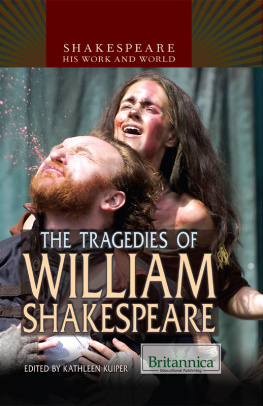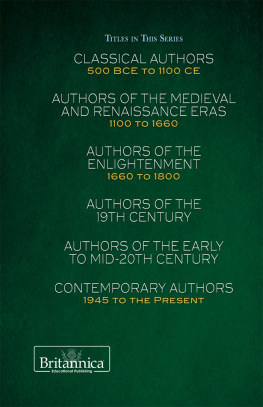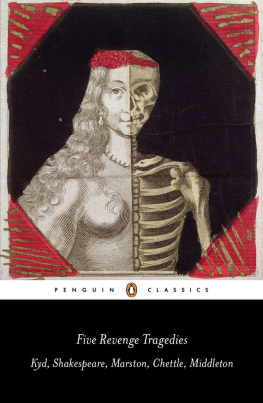Kathleen Kuiper - The Tragedies of William Shakespeare
Here you can read online Kathleen Kuiper - The Tragedies of William Shakespeare full text of the book (entire story) in english for free. Download pdf and epub, get meaning, cover and reviews about this ebook. year: 2012, publisher: Rosen Education Service, genre: Non-fiction. Description of the work, (preface) as well as reviews are available. Best literature library LitArk.com created for fans of good reading and offers a wide selection of genres:
Romance novel
Science fiction
Adventure
Detective
Science
History
Home and family
Prose
Art
Politics
Computer
Non-fiction
Religion
Business
Children
Humor
Choose a favorite category and find really read worthwhile books. Enjoy immersion in the world of imagination, feel the emotions of the characters or learn something new for yourself, make an fascinating discovery.
- Book:The Tragedies of William Shakespeare
- Author:
- Publisher:Rosen Education Service
- Genre:
- Year:2012
- Rating:5 / 5
- Favourites:Add to favourites
- Your mark:
- 100
- 1
- 2
- 3
- 4
- 5
The Tragedies of William Shakespeare: summary, description and annotation
We offer to read an annotation, description, summary or preface (depends on what the author of the book "The Tragedies of William Shakespeare" wrote himself). If you haven't found the necessary information about the book — write in the comments, we will try to find it.
The Tragedies of William Shakespeare — read online for free the complete book (whole text) full work
Below is the text of the book, divided by pages. System saving the place of the last page read, allows you to conveniently read the book "The Tragedies of William Shakespeare" online for free, without having to search again every time where you left off. Put a bookmark, and you can go to the page where you finished reading at any time.
Font size:
Interval:
Bookmark:



Published in 2013 by Britannica Educational Publishing
(a trademark of Encyclopdia Britannica, Inc.)
in association with Rosen Educational Services, LLC
29 East 21st Street, New York, NY 10010.
Copyright 2013 Encyclopdia Britannica, Inc. Britannica, Encyclopdia Britannica, and the Thistle logo are registered trademarks of Encyclopdia Britannica, Inc. All rights reserved.
Rosen Educational Services materials copyright 2013 Rosen Educational Services, LLC.
All rights reserved.
Distributed exclusively by Rosen Educational Services.
For a listing of additional Britannica Educational Publishing titles, call toll free (800) 237-9932.
First Edition
Britannica Educational Publishing
J.E. Luebering: Senior Manager
Adam Augustyn: Assistant Manager
Marilyn L. Barton: Senior Coordinator, Production Control
Steven Bosco: Director, Editorial Technologies
Lisa S. Braucher: Senior Producer and Data Editor
Yvette Charboneau: Senior Copy Editor
Kathy Nakamura: Manager, Media Acquisition
Kathleen Kuiper: Senior Editor, Arts and Culture
Rosen Educational Services
Jeanne Nagle: Senior Editor
Nelson S: Art Director
Cindy Reiman: Photography Manager
Amy Feinberg: Photo Researcher
Brian Garvey: Designer and Cover Design
Introduction by J.E. Luebering
Library of Congress Cataloging-in-Publication Data
The tragedies of William Shakespeare/edited by Kathleen Kuiper.1st ed.
p. cm.(Shakespeare: his work and world)
In association with Britannica Educational Publishing, Rosen Educational Services.
Includes bibliographical references and index.
ISBN 978-1-61530-932-0 (eBook)
1. Shakespeare, William, 1564-1616Tragedies. I. Kuiper, Kathleen.
PR2983.T67 2013
822.33dc23
2012021217
On the cover: One of three prophesying witches revealing a bloody future for the title character, played by actor Antony Byrne, in a London production of Macbeth, in 2007. Elliott Franks/WireImage/Getty Images
Pages 1, 17, 26, 44, 82 Hulton Archive/Getty Images

W illiam Shakespeares tragedies, such as Hamlet, King Lear, and Macbeth, are considered by many to be the greatest achievements in the history of the written word. That is not an honour lightly bestowed. Shakespeares reputation as arguably the greatest writer of all time has been commonly accepted for centuries. Yet these tragedies are not simply esteemed because they are well-known products of a famous name that have gained exalted status through historical repetition. Rather, they represent the pinnacle of literary insight into most every facet of the human psyche. As detailed in the pages of this book, these plays continue to move and beguile both scholars and non-scholars to the present day.
The lasting iconic reputation of Shakespeares tragic plays is primarily based on those works collectively known as the great tragedies, a grouping of plays that typically consists of Hamlet, Othello, King Lear, Macbeth, andAntony and Cleopatra. But his tragic oeuvre is much larger and more varied than just those five dramas. His earliest tragedy, Titus Andronicus, was one of the first plays he ever composed and certainly the most grotesquely violent. An account of the betrayal of the titular Roman general, who brutally avenges the daughter raped and mutilated by his enemies, the surpassingly bloody work (by Shakespearean standards, at least) was in the spirit of the graphic melodramas that were popular in the late 16th century.

Composite showing actor David Garrick performing as the title character in three of William Shakespeares great tragedies King Lear, Macbeth, and Othello as well as the history play Richard III. The Bridgeman Art Library/Getty Images
Another, and certainly more popular among contemporary readers, early tragedy is Romeo and Juliet. The story of teenaged lovers kept apart by circumstance has inspired countless other works of art over the centuries, from the beloved play (1957) and film (1961) West Side Story to the Disney television movie High School Musical (2006). While the plays major romantic plotline has been disseminated throughout Western culture to the point that the phrase star-crossed lovers is commonly known by most every literate adult, its additional explorations of family, loyalty, and honour remain enlightening.
Shakespeares Julius Caesar straddles the definitional line between tragedy and history play. Like several of the tragedies, Julius Caesar is based on a historical individual and follows past events, circumstances that certainly would allow the play to be seen in the same light as Shakespeares Richard III and Henry V. But it is the extent to which the character Julius Caesar becomes an overburdened individualone of the hallmarks of tragic dramaover the course of the play that makes it better classed as a tragedy. Through the dramatic treachery of Caesars close friend Brutus and the rest of the group that conspires against the Roman statesman, the play transcends the political concerns of the typical history play and enters into the realm of true tragedy.
Around the same time he produced his great tragedies, Shakespeare also wrote other works in the genre, but with relatively less success. (Relative because it is commonly accepted that even his lesser tragedies far transcend those that were produced from 1616the year of Shakespeares deathto the closing of all English theatres in 1642.) One of these so-called lesser works is Timon of Athens. Unlike most of Shakespeares tragedies, the play has a fairly straightforward plot: The rich and generous Timon spends his fortune on others and is spurned when he is himself in need. He angrily leaves Athens and discovers more riches, which, in turn, brings back the attention of his former friends. The play ends with Timon cursing the Athenians and dying. The play is not one of Shakespeares most popular efforts, not least because the nominal hero of the play, Timon, is a profoundly bitter and unsympathetic character.
Coriolanus is the last of Shakespeares political tragedies. It is the story of a Roman warrior turned politician who is banished and then joins his former enemy Aufidius against Rome. As he nears the city, he is persuaded by his mother to spare Rome and is then killed by his new ally. The play is atypical by Shakespearean standards in that it has a single plot line and relies on understated dialogue or outright silence for its most trenchant moments.
Possibly the hardest Shakespearean play to categorize is Troilus and Cressida. Based on a Greek myth, the work centres on Cressida, a Trojan woman whose father has joined the Greeks, and her lover Troilus, son of the Trojan king. Like Romeo and Juliet, the two lovers are kept apart by circumstances beyond their control, as Cressidas father summons her to the Greek camp and she is forced by her situation to abandon Troilus and take up with a Greek officer, Diomedes. The rest of the play follows the principals of the Trojan War, presenting them all in an unflattering light. Typically grouped with the other difficult-to-classify works
Font size:
Interval:
Bookmark:
Similar books «The Tragedies of William Shakespeare»
Look at similar books to The Tragedies of William Shakespeare. We have selected literature similar in name and meaning in the hope of providing readers with more options to find new, interesting, not yet read works.
Discussion, reviews of the book The Tragedies of William Shakespeare and just readers' own opinions. Leave your comments, write what you think about the work, its meaning or the main characters. Specify what exactly you liked and what you didn't like, and why you think so.

